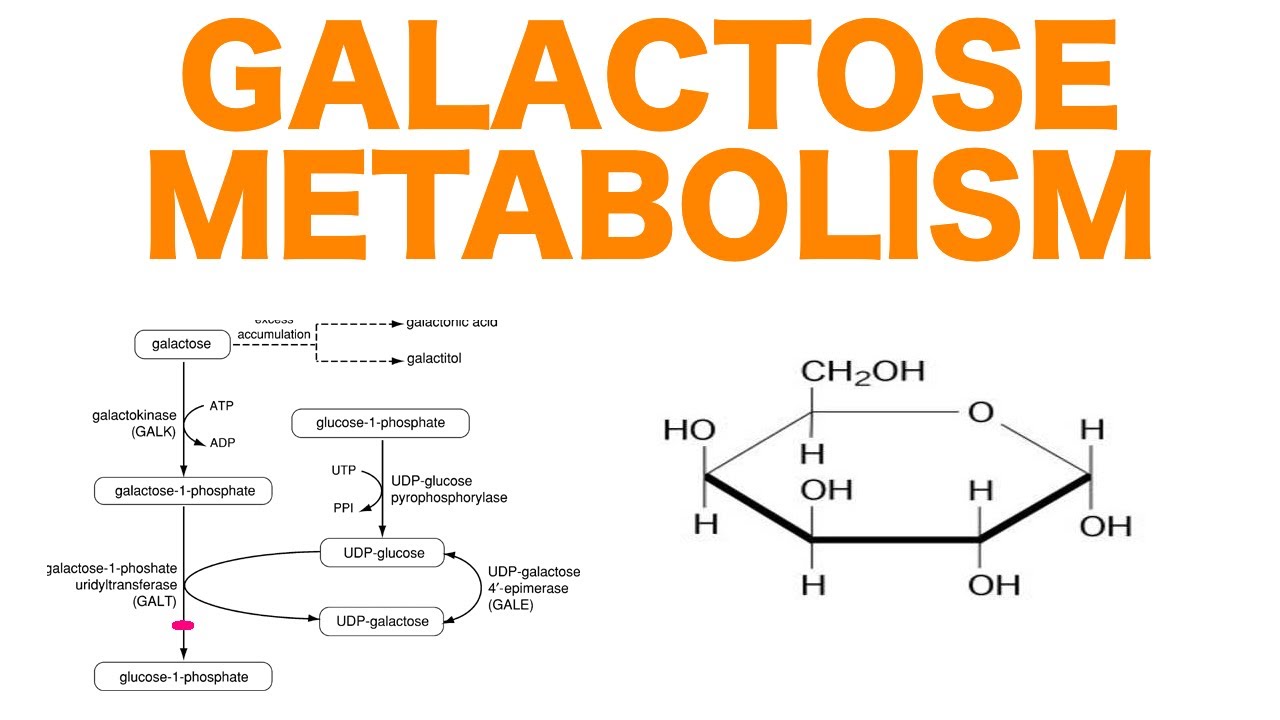
Galactose is a simple sugar, or monosaccharide, that plays a crucial role in our bodies. Found in dairy products, certain fruits, and vegetables, this sugar is essential for energy production and cellular functions. But what makes galactose so interesting? Galactose is not just a source of energy; it also contributes to the formation of glycolipids and glycoproteins, which are vital for cell communication and immune response. Unlike glucose, galactose is less sweet and metabolizes differently, making it unique among sugars. Curious about how this sugar impacts your health, diet, and even certain medical conditions? Read on to discover 35 fascinating facts about galactose that will change how you view this everyday nutrient.
What is Galactose?
Galactose is a type of sugar that is less well-known than glucose or fructose but plays a crucial role in our bodies. It's a monosaccharide, meaning it's a simple sugar that can be absorbed directly into the bloodstream. Let's dive into some fascinating facts about this essential sugar.
- Galactose is a simple sugar, also known as a monosaccharide.
- It is one of the two sugars found in lactose, the other being glucose.
- Galactose is less sweet compared to glucose and fructose.
- It is naturally found in dairy products, avocados, and sugar beets.
- The human body can convert galactose into glucose for energy.
Biological Importance of Galactose
Galactose isn't just a sugar; it has several important functions in the body. From being a part of cell membranes to playing a role in brain development, galactose is vital for various biological processes.
- Galactose is a component of glycolipids, which are essential for cell membrane stability.
- It is also part of glycoproteins, which play a role in cell recognition and signaling.
- Galactose is crucial for brain development in infants.
- It is involved in the synthesis of lactose in the mammary glands during lactation.
- The liver is the primary site for galactose metabolism.
Galactose Metabolism
Understanding how galactose is metabolized can give insights into its role in health and disease. The body has specific pathways to break down galactose and convert it into usable forms of energy.
- Galactose is metabolized in the liver through the Leloir pathway.
- The enzyme galactokinase phosphorylates galactose to galactose-1-phosphate.
- Deficiency in galactokinase can lead to a condition called galactosemia.
- Galactose-1-phosphate is converted to UDP-galactose by the enzyme GALT.
- UDP-galactose can be converted to UDP-glucose, which enters glycolysis for energy production.
Health Implications of Galactose
While galactose is essential, imbalances or metabolic issues can lead to health problems. Knowing these can help in understanding certain medical conditions and dietary needs.
- Galactosemia is a genetic disorder affecting galactose metabolism.
- Symptoms of galactosemia include jaundice, liver enlargement, and cataracts.
- Early diagnosis and dietary management can prevent severe complications in galactosemia.
- Excessive galactose intake can lead to cataract formation.
- Galactose has been studied for its potential role in aging and neurodegenerative diseases.
Dietary Sources of Galactose
Knowing where galactose comes from can help in managing its intake, especially for those with metabolic disorders. Here are some common sources of galactose in our diet.
- Dairy products like milk, cheese, and yogurt are rich in galactose.
- Legumes such as beans and lentils contain galactose.
- Certain fruits like avocados and cherries have galactose.
- Sugar beets are a significant source of galactose.
- Some processed foods may contain added galactose.
Fun Facts About Galactose
Beyond its biological and health implications, galactose has some interesting trivia associated with it. These fun facts can make learning about this sugar even more engaging.
- Galactose is sometimes referred to as "brain sugar" due to its role in brain development.
- The name "galactose" is derived from the Greek word "galaktos," meaning milk.
- Galactose can be used in the production of biofuels.
- It is also used in the cosmetic industry for its moisturizing properties.
- Galactose can form crystals, which are used in scientific research.
Galactose in Research and Medicine
Galactose continues to be a subject of scientific research, offering potential new treatments and insights into various medical conditions.
- Researchers are studying galactose's role in cancer cell metabolism.
- Galactose is being explored as a potential treatment for certain genetic disorders.
- Studies are investigating the impact of galactose on gut health and microbiota.
- Galactose derivatives are being tested for their antiviral properties.
- Advances in galactose research could lead to new dietary supplements and medical therapies.
The Sweet Truth About Galactose
Galactose, a simple sugar, plays a crucial role in our bodies. Found in dairy products, fruits, and vegetables, it’s a key player in energy production and cellular communication. Despite being less sweet than glucose, it’s vital for brain development and immune function. Galactosemia, a rare genetic disorder, highlights the importance of proper galactose metabolism. Those with this condition must avoid foods containing galactose to prevent serious health issues.
Understanding galactose helps us appreciate the complexity of our diet and metabolism. Whether you’re a science enthusiast or just curious about what’s in your food, knowing these facts can be eye-opening. So next time you enjoy a glass of milk or a piece of fruit, remember the tiny sugar molecule working behind the scenes to keep you healthy. Galactose may be small, but its impact is significant.
Was this page helpful?
Our commitment to delivering trustworthy and engaging content is at the heart of what we do. Each fact on our site is contributed by real users like you, bringing a wealth of diverse insights and information. To ensure the highest standards of accuracy and reliability, our dedicated editors meticulously review each submission. This process guarantees that the facts we share are not only fascinating but also credible. Trust in our commitment to quality and authenticity as you explore and learn with us.
